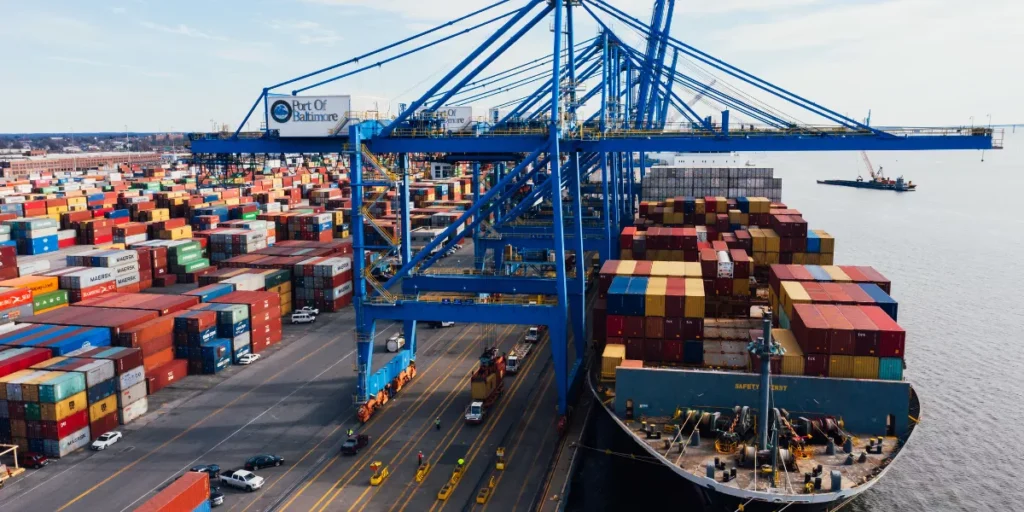In the fight against financial crime and terrorism, AML sanctions act as a powerful shield, safeguarding the global financial system from illicit activities. These sanctions, enforced by international regulatory bodies, serve as a critical tool to prevent money laundering, terrorist financing, and other financial misconduct. For businesses and financial institutions operating in the UAE, understanding these sanctions is not just about compliance, it’s about protecting their reputation and ensuring seamless operations. This guide breaks down the different types of sanctions in AML , their objectives and the compliance measures every entity must follow,
What are Sanctions in AML?
Sanctions in Anti-Money Laundering (AML) represent governmental or international body-imposed limitations which block financial interactions with people and organizations or nations participating in illegal acts. These sanctions, which include financial and travel restrictions, asset freezes, and system access limitations, attempt to prevent money laundering and terrorism financing, as well as drug trafficking and human rights violations. The primary objective of these anti-crime organisations is to restrict the flow of unlawful funds while also protecting financial institutions from misuse and promoting global economic stability.
Businesses need to perform sanctions screening to detect restricted parties for compliance purposes because noncompliance leads to heavy penalties and permanent damage to their reputation along with severe financial penalties. Sanctions break down financial connections for specific people or organizations so they lack resources to pursue destructive operations. The imposition of sanctions by multiple nations generates stronger results which supports both global security together with enhanced financial clarity.
Purposes of Sanctions in AML

Sanctions work as essential tools to accomplish several goals in financial crime prevention alongside global security measures. Here are five key objectives:
- Enforcing compliance: The enforcement of sanctions operates to make sure that people along with businesses and countries fulfill their international legal obligations while following AML rules. Financial access restrictions for illegal entities protect the necessity of transparent financial systems while they maintain accountability.
- Preventing financial crimes: Financial crimes remain disrupted because sanctions implement asset freezes together with transaction blocking and bank restrictions on access. The system equips security officials by preventing money laundering and fraud while stopping corruption and terrorist financing which reduces criminal operations in the global financial structure.
- Enhancing security: Sanctions improve national security measures by identifying and cutting off revenue for entities that support terrorism, weapons trafficking networks, and organized criminal gangs. Foreign adversaries must give up their funding power because travel bans and trade restrictions and financial limitations stop them from using their resources toward destabilizing territorial regions.
- Promoting human rights: Economic and targeted sanctions function as a tool to penalize regimes along with individuals who perform human rights violations and conduct corrupt and repressive actions Financial disruptions as well as severed international trade relations push the sanctioned entities to implement fair democratic systems and guarantee freedom for citizens.
- Applying economic pressure: Economic pressure strategies such as trade restrictions, bank account freezes, and investment prohibitions limit the economic capabilities of targeted groups or individuals. Targeted governments, organizations, and individuals have constraints as a result of this pressure, forcing them to achieve policy change while adhering to international standards and engaging in authorized financial operations.
Types of Sanctions in AML
Compliance and enforcement of international financial regulations heavily depend on Anti-Money Laundering measures that use sanctions to stop illegal financial dealings. Sanctions create limitations that prevent personal and business financial dealings along with dealings in trade and international travel. Here are the major types of sanctions in anti-money laundering:
Economic Sanctions
Economic sanctions are financial penalties imposed by one or more countries against a certain self-governing state, group, or individual. These measures limit cross-border trade and investment activities and transaction flows to designated entities. Sanctions cause vast economic damage to entire economic systems which yields harm to business industries and suppresses growth nationwide.
Financial Sanctions
Financial sanctions block assets while preventing entities or individuals from accessing financial institutions and obligating them to avoid all transactions. These sanctions may block sanctioned parties from using funds illegally thus hampering their ability to transfer or clean their illicit money through worldwide finance.
Trade Sanctions
Trade sanctions halt the entire communication system between businesses , nations and industries by blocking all strategic transactions. Through these restraints sanctioned parties lose their ability to gain fundamental resources or economic advantages which reduces their involvement in illicit conduct.
Travel Sanctions
These sanctions prevent movement of people who financially commit criminal activities or engage in terrorism or human rights violations. Free crossing abroad becomes challenging because sanctioned individuals encounter difficulties with visas and denials and limitations of international travel.
Targeted Sanctions
The sanctioned entities are strictly individuals and specific organizations not entire nations. These intervention methods specifically target financial criminals and corruption rings while stopping terrorism financing activities in order to reduce negative outcomes for society at large.
Sectoral Sanctions
A particular industry sector represents the focus of sectoral sanctions through which authorities restrict energy operations, defense systems technology and other specified industries of targeted regions or entities. The sanctions system restricts organizations from accessing important resources and financial connections to weaken them economically and operationally while maintaining some international trade.
Arms Embargoes
Arms embargoes prohibit weapons as well as military equipment sales and transportation to organizations under sanction. Global security and stability improve because these prohibitions restrict military prowess and illegal weapon trafficking and stop violent confrontations.
Embargoes
An embargo blocks trade completely or partly against one nation so goods and services along with capital cannot move between countries. The economic measures function as punishment tools to stop international law violations and discourage illegal behavior and force governments to modify objectionable policies.
Export and Import Restrictions

Export restrictions block the distribution of particular goods combined with services and intellectual property to sanctioned countries and import restrictions stop the receipt of goods from forbidden entities. The measures function to block financial resources from entering sanctioned nations thus stopping them from purchasing needed resources which may be used in illegal ways.
Export controls
Governments use export controls to manage the distribution of controlled goods technology and services which present possible security threats to domestic or worldwide safety. The sanctions specifically limit trade in military equipment along with dual-use technologies and narcotics-related products because they aim to break down criminal and terrorist operations.
Capital Controls
The purpose of capital controls is to stop sanctioned countries, industries and companies from obtaining international market access to make investments. Financial restrictions eliminate foreign investments which reduces the funding available for performing money laundering operations and terrorism funding activity.
Asset Freezes or Seizures
Under asset freezes and seizures sanctioned entities including individuals and companies and countries become restricted from their asset usage between trading and transfer. Both as means of punishment and prevention the measure restricts criminals’ financial influence while ensuring international law compliance takes effect.
Financial institutions together with governments enforce sanctions to boost AML operations while disrupting financial wrongdoing which leads to improved worldwide security standards. Consult Xpert Advisory to ensure your business stays ahead of evolving AML regulations and enhances its compliance efforts.
Benefits of Sanctions in AML Compliance Framework in the UAE
Sanctions are political and economic measures that frequently symbolize a government or organization’s diplomatic efforts to safeguard national security and international law. The implementation of different types of sanctions in AML compliance practices brings multiple essential advantages to the UAE:
- Strengthening Financial Integrity: Implementing sanctions creates a strong financial system that deters money laundering and terrorism financing operations in the UAE. The implementation of this system creates a reliable setting that attracts investors from both domestic and international sectors.
- Enhancing Regulatory Compliance: Sanctions serve as proof of how the UAE fulfills worldwide standards established for Anti-Money Laundering by following these international protocols. The country maintains a better financial reputation because of its alignment with international standards therefore lowering its vulnerability to penalties.
- Preventing Terrorism Financing: By interrupting financial web systems terrorists rely on sanctions, creating both, domestic and regional security benefits. The UAE capabilities to control terrorist threats are enhanced through asset-freezing enforcement and transaction limits.
- Protecting Business Interests: UAE business protection from risky entities becomes possible through the implementation of sanctions which reduces both financial and legal risks that these businesses could potentially face. The preventive measures defend genuine businesses conducting operations throughout the UAE national territory.
- Boosting International Trade Relations: Through a comprehensive sanctions framework the UAE achieves better positions in international spaces which encourages improved trading partnerships and increases attraction of foreign business capital. International AML standard compliance demonstrates to global partners that the UAE maintains an uncorrupted financial framework
- Supporting Economic Stability: The UAE economy maintains stability when financial crime risks are successfully minimized through the implementation of sanctions. Financial stability enables long-term economic growth and progress for nations.
- Enhancing Law Enforcement Efficiency: The UAE uses sanctions as effective law enforcement tools which enable authorities to manage financial criminal activities and strengthens the capabilities of enforcement officers to fight financial offenses.
Final Thoughts
Anti-Money Laundering (AML) compliance depends heavily on effective sanctions enforcement because it establishes secure operating conditions for businesses and financial institutions. Organizations should implement strong sanctions screening systems which enable them to lower security risks and stop unauthorized financial transactions and comply with official regulations. The fight against financial crime calls for ongoing vigilance in managing updated sanction lists combined with efficient AML solutions to uphold both economic stability and global financial system trust.
Do you want to ensure your business remains compliant and protected from AML risks? Xpert Advisory provides comprehensive AML compliance consultancy services tailored to your needs. From meticulous sanctions screening to real-time monitoring , our customized solutions ensure full compliance and safeguard your business. Contact us today to let us manage your compliance needs!
FAQs
What is Sanction Screening and Its Purpose?
Sanction screening serves as a system to identify and block individuals or entities which violate international sanctions through their activities or transactions. Such sanctions emerge from political and economic decision making processes which target certain entities with the goal of changing their behaviors.
What are the Major Types of Sanctions in AML and Their Purpose?
In AML, the key type of sanction is economic sanctions, which is designed to regulate financial transactions and asset movements for protecting against money laundering and terrorist funding attempts. Economic sanctions represent the most relevant regulatory tool among military sanctions, diplomatic sanctions and sport sanctions under AML regulations.
How Do Imposed Sanctions Help in Preventing Money Laundering?
Imposed sanctions target countries involved in illegal activities like money laundering, restricting their access to financial systems. This helps prevent the flow of illicit funds and ensures compliance with international laws.


